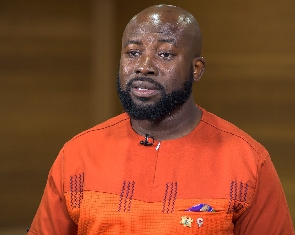Ex-GNPC Chairman speaks on:
How To Make Ghana’s Oil Beneficial
Former Board Chairman of the Ghana National Petroleum Corporation (GNPC), Dr. Joe S. L. Abbey, has observed that though various ideas have been proposed on how Ghana can make its oil find beneficial, it is crucial for managers of the nation’s development to first set national development targets.
Dr. Abbey, who is currently the Executive Director of the Centre for Policy Analysis (CEPA), stressed that it is only when Ghana’s development targets are set that oil revenue expenditure can be judiciously prioritized.
He said our country cannot afford to repeat the mistakes of other oil drilling countries where oil has been a curse rather than a blessing. The CEPA boss noted that to avoid the mistakes of other countries and make Ghana’s oil find beneficial to the citizenry, there was the need to assess the country’s current situation and reason together as Ghanaians.
Speaking to The Business Analyst in an exclusive interview last Friday, Dr. Abbey stressed that Ghanaians are neither more brainy nor luckier than citizens of other countries that are suffering the ravages of oil conflicts, therefore the need for consensus building on maximizing the profits of our oil.
“Let us prepare well. Let the oil be a facilitator. Let it be the thing that broke our beggar mentality; the oil find should be a call to action, particularly for those who have the capacity and skill to advise government on the way forward,” Dr. Abbey advised.
He revealed that the expected oil money and Ghana’s status as an oil producer have several implications that should get policy makers thinking about how to mitigate any negative consequences that may be associated with the new status of the nation.
“We should by now have sat down to ascertain how much money donors are likely to hold back as a result of our oil producing status and determine how much of the oil money we plan to spend or set aside for future generations,” Dr. Abbey lamented.
Saving for future or abroad
On the proposition that the revenue from the crude oil production should be saved for future use, Dr. Abbey said that position is “a challenge to the intellectuals of this country who have not determined what projects we need to advance our growth”. He added we should be concerned that we haven’t done that, because that is an admission that we haven’t prepared our minds on how to develop our country now and that is why we want to set aside a chunk of the revenue for future use.”
“It is when you are incapable of using your talents that you bury it,” Dr. Abbey elaborated. “In fact, the bigger the amount we want to set aside, the louder we announce to the world that we don’t trust we’ll use this resource judiciously and that we are not prepared to plan our future.”
Dr. Abbey was of the view that propositions suggesting a need to save the oil money for the future or saving it abroad are tantamount to confessions that Ghanaians are busy talking about entering into something that could ignite or stall the country’s development and yet have no idea exactly what to do with the expected oil wealth.
The CEPA boss said arguments that the money should be saved abroad is hinged on the reasoning that it was safer to keep these monies overseas, which again means we are unsure investing in our own economy will yield adequate returns.
According to Dr. Abbey, other questions such as how much we put in an endowment or stabilisation fund among others, must hinge on the basis of where we are and where we want to go. The basis for determining the rate of distribution of the projected revenue must in turn hinge on knowing where we are. He described these as fundamentals for determining what levels of investments to make in meeting our present development needs and what to set aside for future use.
“The truth of the matter is that we can’t continue to cut back on expenditure, which when we do results in arrears to other sectors within the economy that affect job availability. We must accept the challenge of mapping our path and then we can better appreciate people coming to help us,” he opined.
Dr. Abbey argued that what we need and take from the oil revenue today may be more than what would be needed tomorrow, because we may have more serious challenges today.
He emphasized the need for a realistic analysis, failing which the country may pass a law that we will be stuck with.
General News of Thursday, 3 June 2010
Source: Business Analyst












